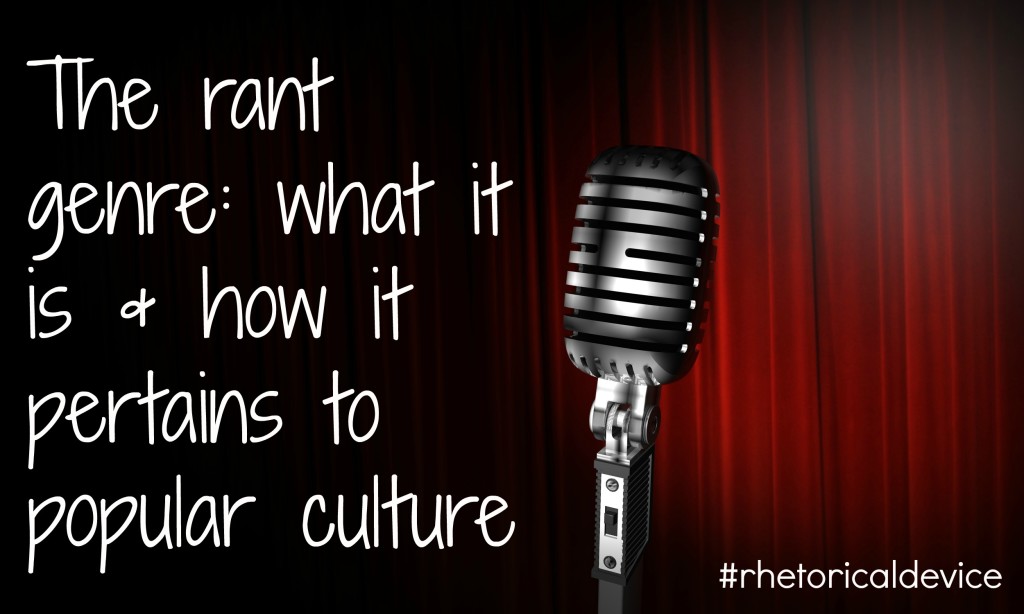The rant is one of my favourite rhetorical genres. Rant genre is characterized by a unique set of qualities that instantly capture attention and can really mesmerize an audience. Often the response that the rhetorician receives after embarking on a rant is either exasperated or amused, but people tend to really listen to a rant. The rant genre is even a form of entertainment: many stand-up comedians use the rant in their shows.
A few of the qualities that characterize the rant genre include:
- One-sided, uninterrupted, binary structure (someone’s right, someone’s wrong).
- Spontaneous, gestural, uncensored, intensely passionate emotion.
- Rhetorical questions with repetition and a fast rate of articulation.
Rants tend to be associated with arrogance, anger, and negativity. While someone is ranting, they are usually waiting for an opening to make their argument best heard. Timing, for a rant, is everything. Sometimes the person who is ranting will became completely engrossed in their rant and lose control, thus reducing their credibility, but in other situations the rhetorician is perfectly controlled. Rick Mercer is an expert at ranting and he always manages to rant with perfect poise. He is able to get his point across more effectively because of this.
The rant genre and binaries
One of the best examples of the rant genre is the infamous I Am Canadian Molson beer commercial. The commercial itself is full of binaries as the narrator declares his understanding of the differences between Canada and the USA (prime minister/president, peacekeeping/militaristic, diversity/assimilation, zed/zee), indicating that meaning is differential. Binaries show us that nothing means anything in and of itself. Things instead take their meaning from what they are opposed to.
Binaries are a key aspect to the rant genre. When someone is ranting, they are describing everything that they do not believe in, and through their rejection of some things, they are selecting other things that they *do* believe in, even if they are not consciously aware of it. The I Am Canadian commercial shows that as Canadians, we don’t have a very clear identity. Instead we are aware of what we are not; we know what we do not want to be. From this, we conclude that we must be the binary opposition.
The rant is implicitly linked to identity. There might even be an identity crisis going on. The only way, then, for the person who is ranting to determine their own identity, is to rant about that which they do not approve of. By eliminating specific possibilities for what their identity could potentially be, they can narrow it down to who and what they really are.
